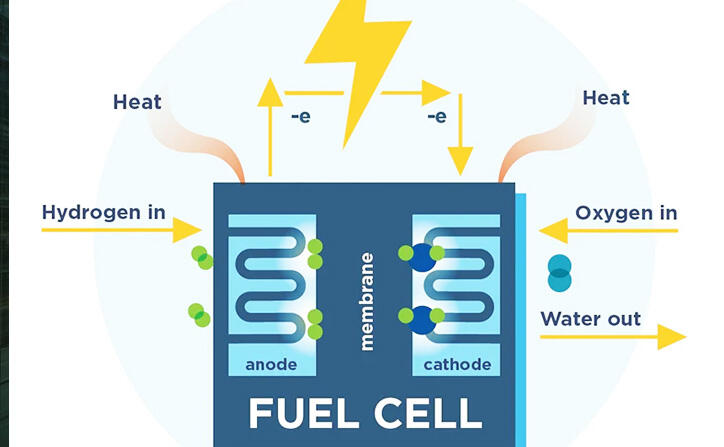Alkaline hydrogen electrolyzer is an important supporting technology for hydrogen fuel cell systems. By producing clean, renewable hydrogen, they enable applications across a wide range of sectors including transportation, power generation and energy...

Alkaline hydrogen electrolyzer is an important supporting technology for hydrogen fuel cell systems. By producing clean, renewable hydrogen, they enable applications across a wide range of sectors including transportation, power generation and energy storage, accelerating the global transition to a green energy future.
Hydrogen Production
Alkaline electrolyzers generate high-purity hydrogen by splitting water into hydrogen (H₂) and oxygen (O₂) using electricity. The hydrogen gas produced can serve as a fuel source for various fuel cells, including proton exchange membrane (PEM) fuel cells and solid oxide fuel cells (SOFCs).
Renewable Energy Integration
Alkaline electrolyzers can utilize electricity from renewable energy sources, such as solar or wind, to produce hydrogen. This hydrogen can then be stored and used in fuel cells to generate electricity on demand, providing a sustainable and reliable energy cycle.
Energy Storage and Load Balancing
Hydrogen is an energy storage medium, enabling fuel cells to supply power during periods when renewable energy generation is low (e.g., at night or during calm weather). This improves grid stability and promotes a transition to low-carbon energy systems.
Hydrogen from alkaline electrolyzers can power fuel cells in various applications, including:
Transportation - Fuel cell vehicles (cars, buses, and trucks) use hydrogen to produce electricity, emitting only water as a byproduct.
Stationary Power Generation - Fuel cells powered by hydrogen provide electricity for homes, businesses, and industrial facilities, particularly in off-grid or remote locations.
Portable Power Systems - Compact fuel cells fueled by hydrogen provide clean energy for electronic devices, drones, and other portable systems.